Download Resources for Reno City
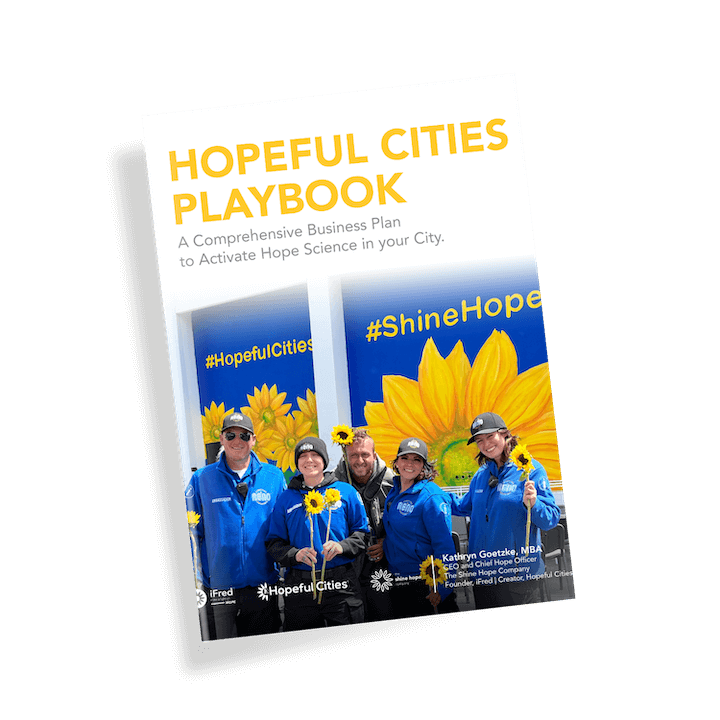
Hopeful Cities Playbook
The Hopeful Cities® Playbook is a resource designed to make Hope accessible and operational in any city around the world. It is a marketing plan in action that operationalizes Hope as it creates awareness about the Science of Hope. It is a step-by-step guide to help cities activate the “how-to” of Hope throughout the community.
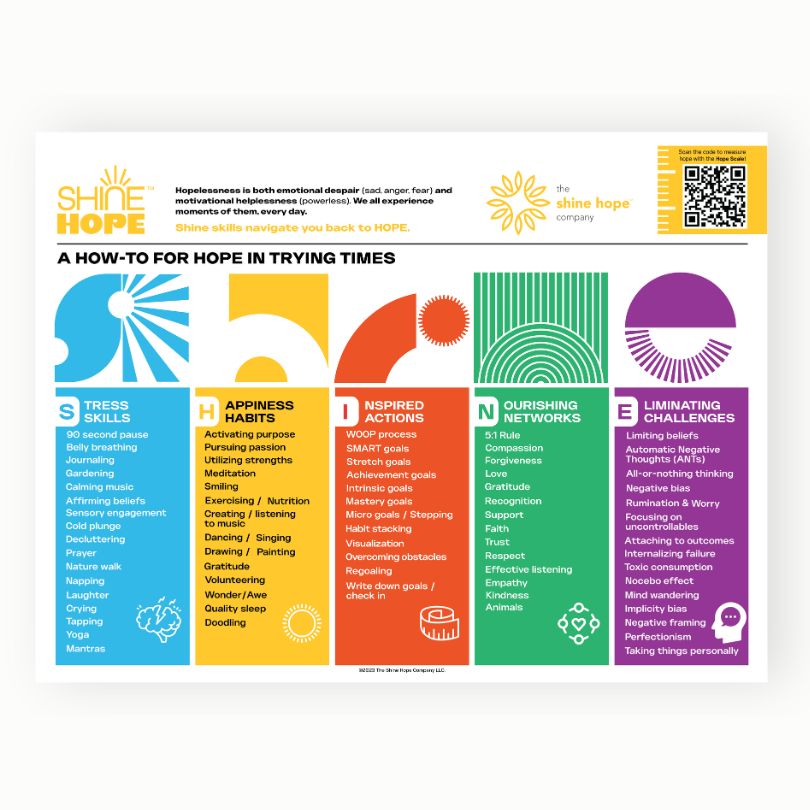
Shine Hope Infographic
Elevate your knowledge of Hope with our Shine Hope Infographic. Hang it on the walls of your workplaces, coffee shops, libraries, waiting rooms or give it to a friend.
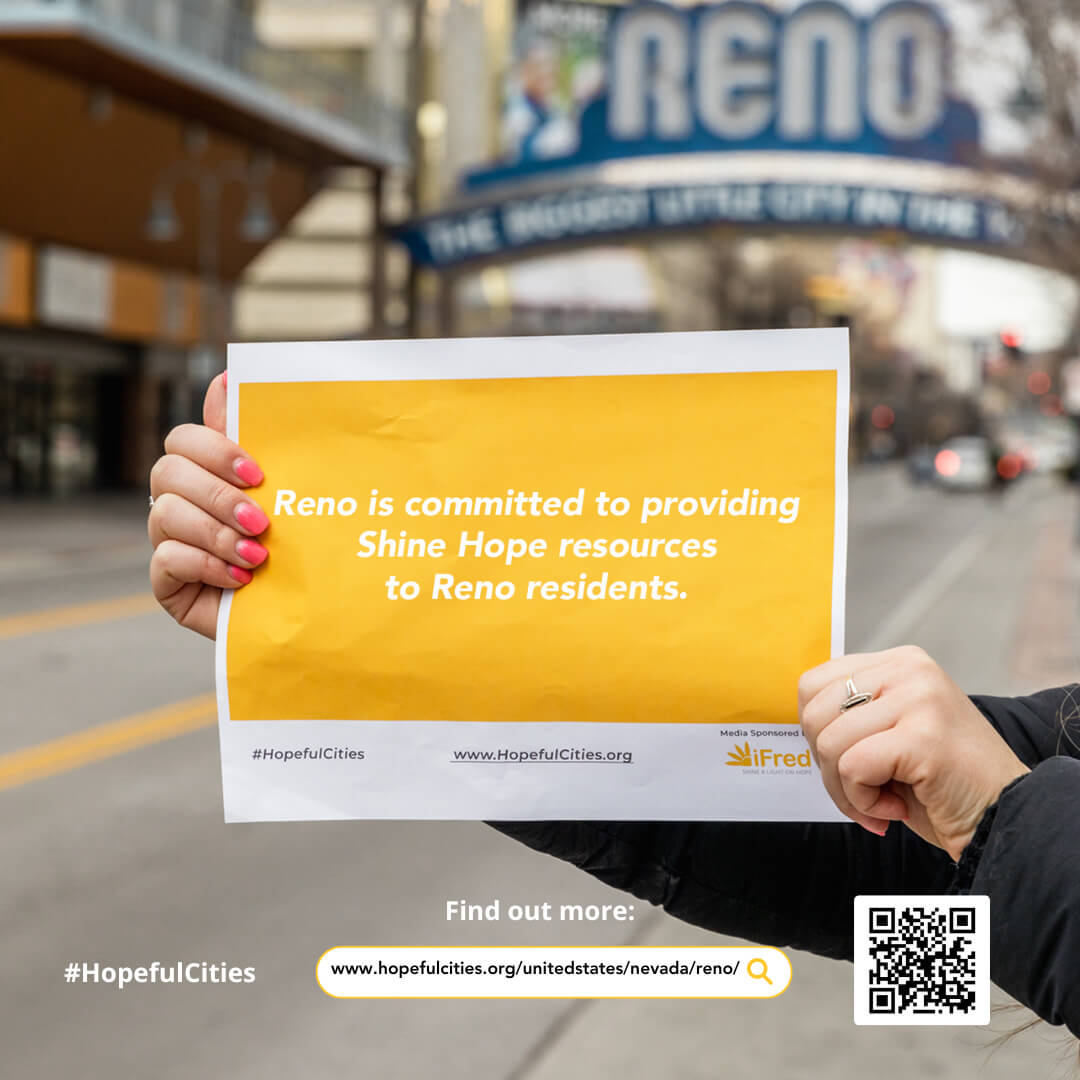
Global Hope Challenge Social Media Kit
The Five-Day Global Hope Challenge is a five-day challenge ensuring all know the what, why, and how to Hope. It reviews what Hopelessness is, the Shine Hope framework, and instructs how to measure Hope. It is a simple way to get started learning how to Shine Hope.
Social media is a great way to share the resources available for Hope with your friends, family, and community, so we have created a social media toolkit for Hope as well. All of our images and content are available to download at no cost to share and activate the message for Hope.
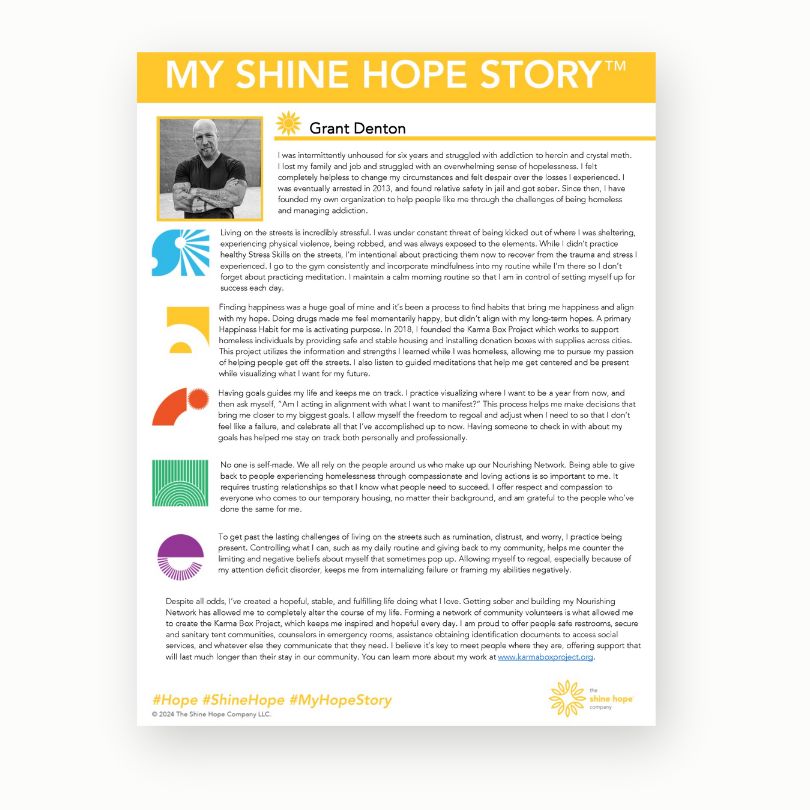
My Shine Hope Story™ Template
My Shine Hope Story gives community leaders an avenue to normalize Hopelessness and share their unique experiences by using the Shine Hope framework. We all experience moments of Hopelessness (i.e., emotional despair and motivational helplessness). How we manage the moments of Hopelessness matters.
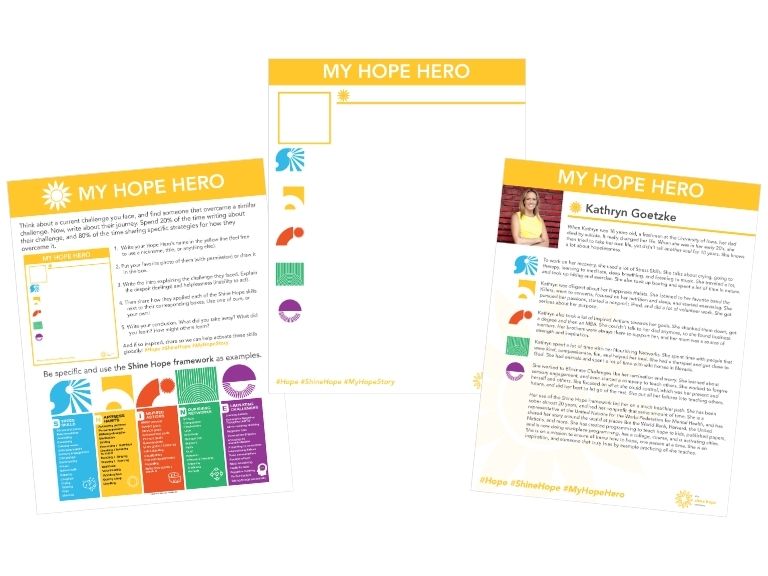
My Hope Hero Template
My Hope Hero gives community leaders an avenue to normalize Hopelessness and share their unique experiences by using the Shine Hope framework. We all experience moments of Hopelessness (i.e., emotional despair and motivational helplessness). How we manage the moments of Hopelessness matters.
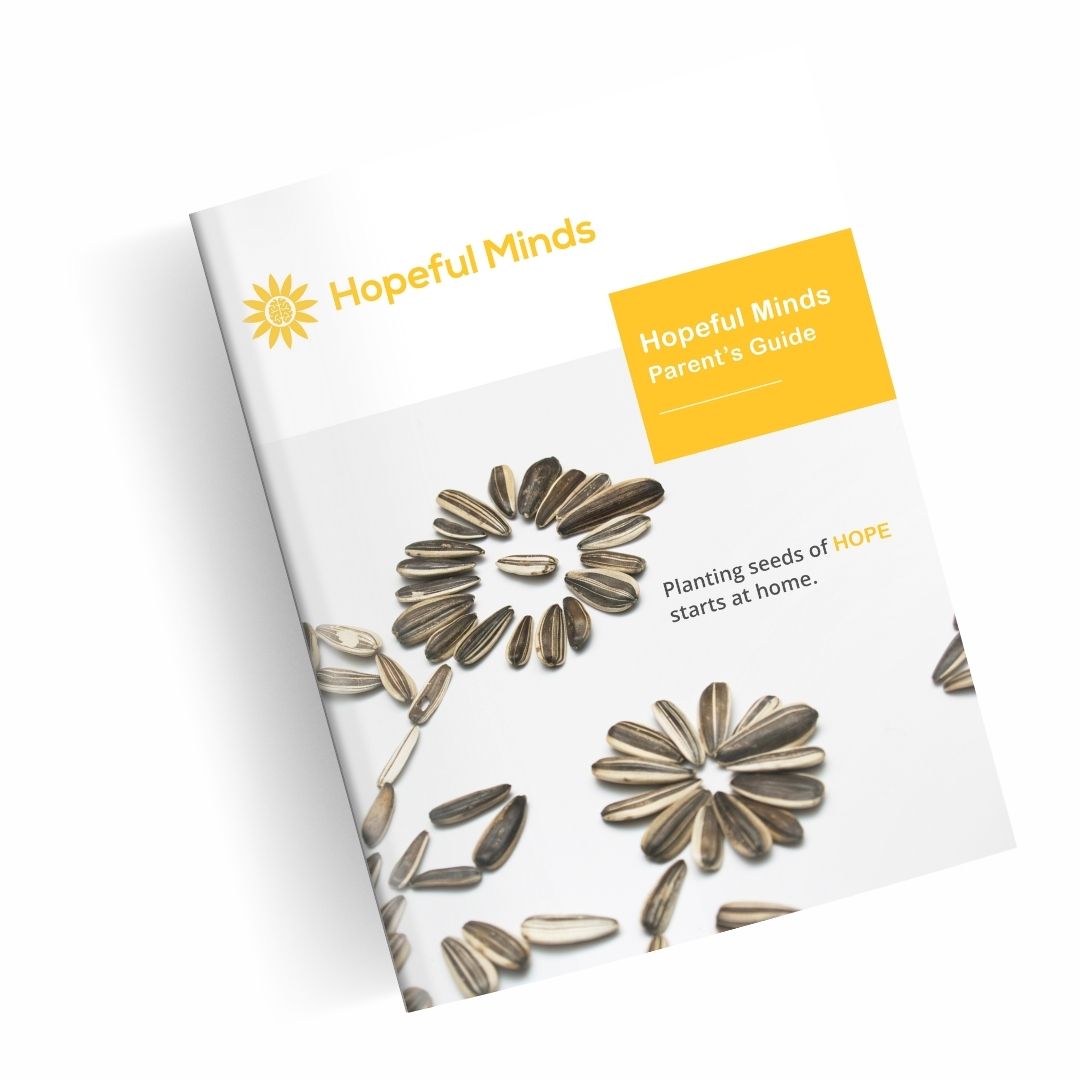
Hopeful Minds Parent's Guide
The Hopeful Minds® Parent’s Guide provides a broad overview of the concepts discussed in the Hopeful Minds curriculums, and provides parents with easy ways to implement the Five Keys to Shine Hope (Stress Skills, Happy Habits, Inspired Actions, Nourishing Networks, and Eliminating Challenges) and Hopeful language in the home.
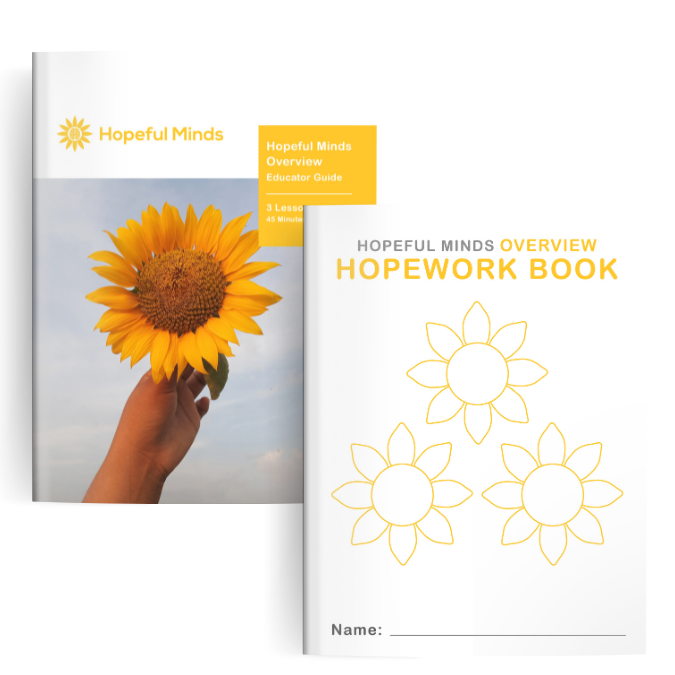
Hopeful Minds Overview Educator Guide and Workbook
The Hopeful Minds® Overview Educator Guide is a curriculum designed to give children an introduction to the “what,” “why,” and “how” of Hope. The curriculum includes three, 45-minute lessons that introduce the key tools needed to create, maintain, and grow Hope, background information for educators, supplemental resources, classroom visuals, and a Hopework Book for students.
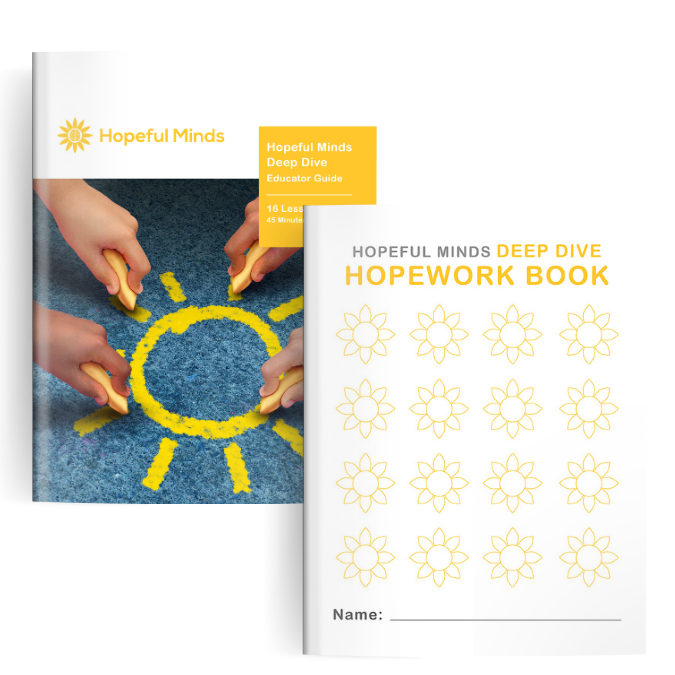
Hopeful Minds Deep Dive Educator Guide and Workbook
The Hopeful Minds® Deep Dive Educator Guide is a scripted curriculum designed for educators (or anyone working with children) to give children a deeper understanding of the core components of Hope. The curriculum includes 16, 45-minute lessons that explore the tools needed to create, maintain, and grow Hope, background information for educators, supplemental resources, classroom visuals, and a Hopework Book for students.
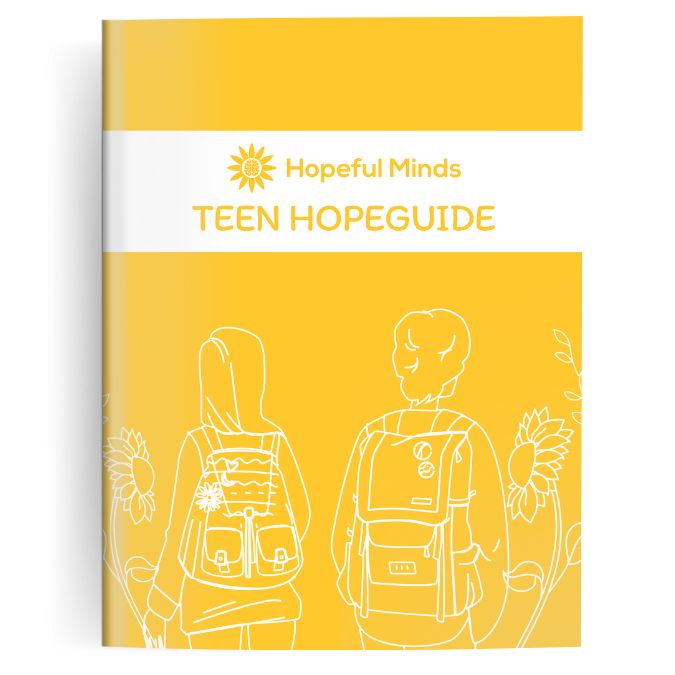
Hopeful Minds Teen Hopeguide
Tested and approved by teens, the ‘Hopeful Minds® Teen Hopeguide is a 12-module workbook that introduces the Five Keys to Shine Hope™: Stress Skills, Happiness Habits, Inspired Actions, Nourishing Networks, and Eliminating Challenges. This comprehensive approach empowers teens to navigate challenges, embrace positivity, and empower resilience.
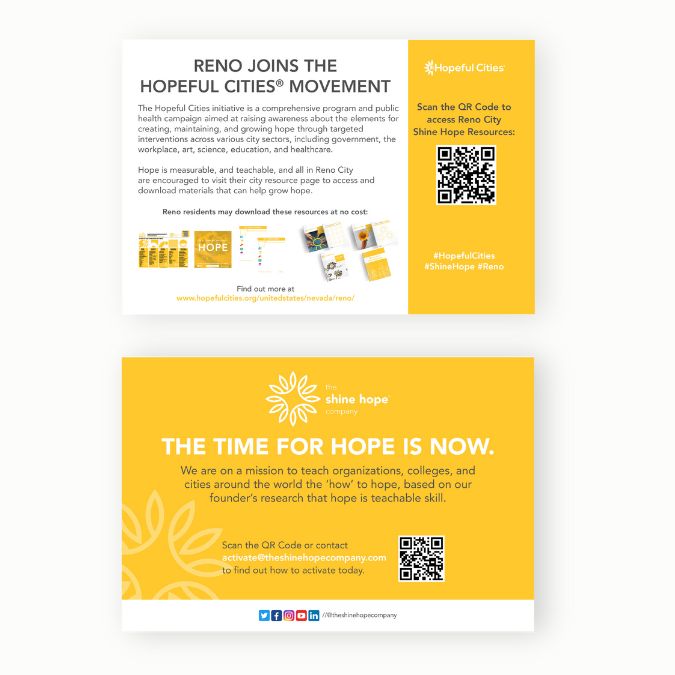
Postcards
These postcards are designed to connect city residents with valuable, no-cost resources to help them learn how to Hope. This make it easy for individuals to access their city’s Shine Hope resources by simply scanning the included QR code or following the provided link. These postcards are perfect for distributing at community events, schools, local businesses, or any gathering where spreading Hope can make a difference.

Moment of Hope Cards
These pocket-sized educational cards feature inspiring Hope *quotes on one side and tips on how to Shine Hope on the other. Give to friends, family members, at work, and in the community.
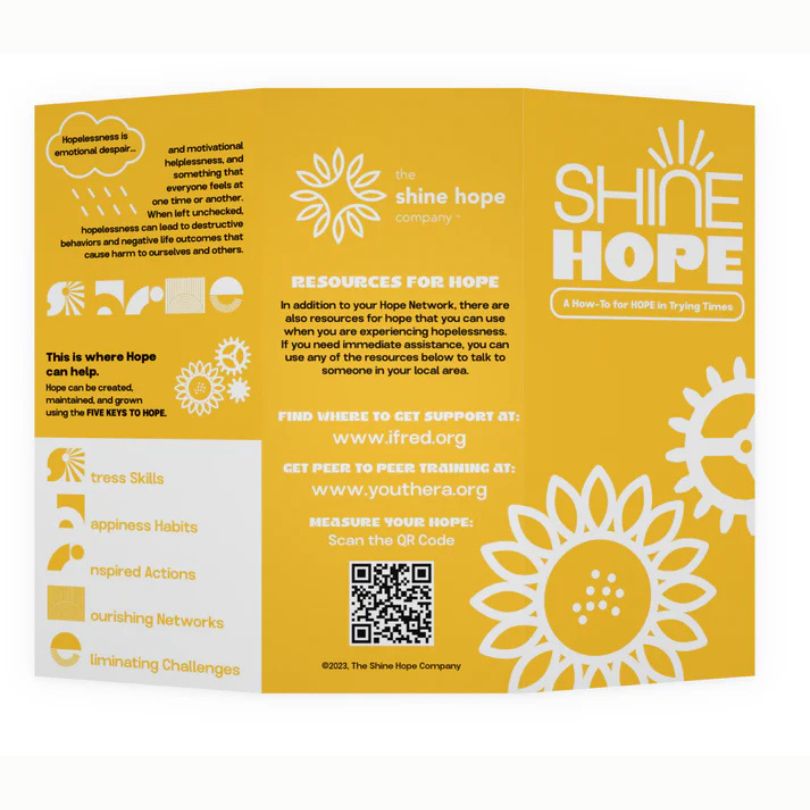
Teen Shine Hope Brochure
Elevate your knowledge of Hope with our Teen Shine Hope Brochure. Display it in your waiting room, distribute it at work, give it to teen students, put it in a library, or give it to a friend. Included are tips on the Shine Hope framework, and resources that are available to elevate in your life and with others.
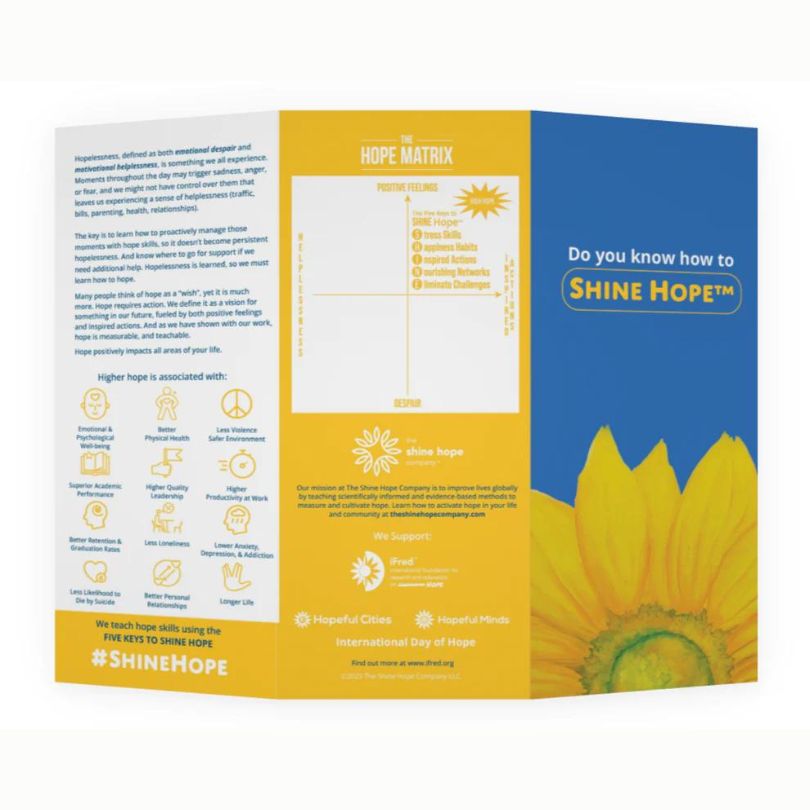
Shine Hope General Brochure
Elevate your knowledge of Hope with our digital Shine Hope Brochure. Display it in your waiting room, distribute it at work, give it to students, put it in a library, or give it to a friend. Included are tips on the Shine Hope framework, and resources that are available to elevate in your life and with others.

Posters
Elevate your knowledge of Hope with our Shine Hope posters. Hang it on the walls of your workplaces, coffee shops, libraries, waiting rooms or give it to a friend.
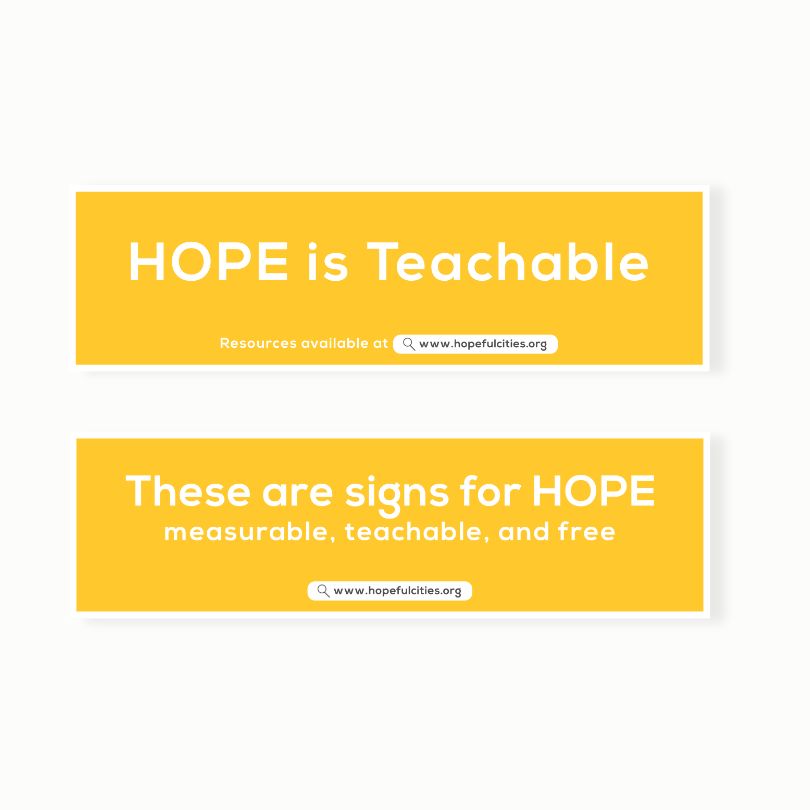
Billboards
A great way to share the initial message that “Hope is Teachable” to a wide audience is through billboards. Billboards are effective for getting messages to broad populations, as they are free to view unlike newspapers and magazines. Billboards allow you to reach more people faster and cheaper than many other mass marketing media, and are effective for branding campaigns.
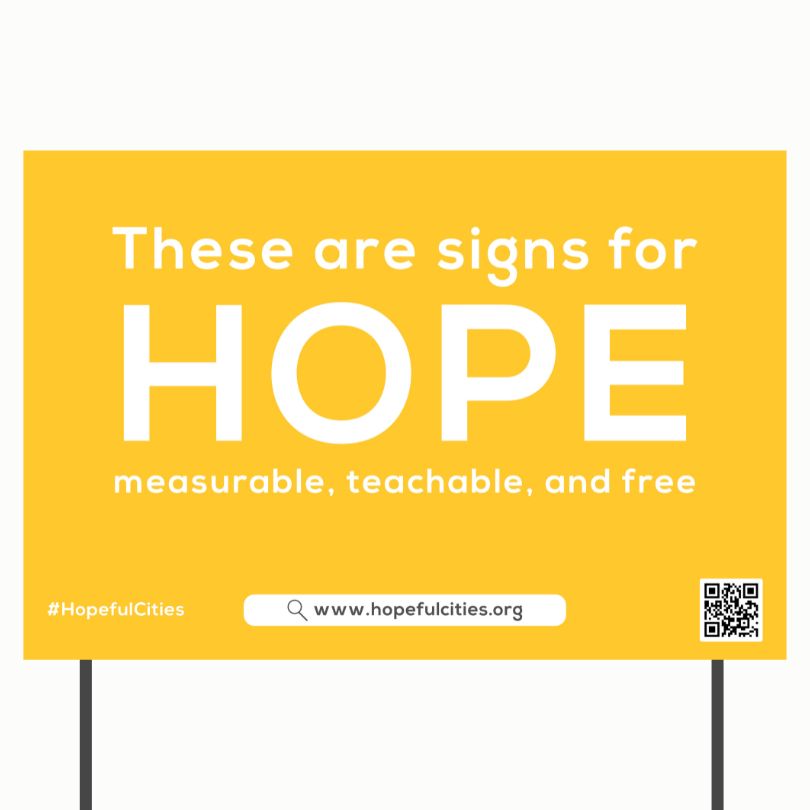
Yard Signs
Yard Signs are a simple and cost-effective way to spread the “how-to” of Hope in the community. They are easy to print, as most local printers do so already for political campaigns. They spread awareness, are affordable, and are a great way to activate Hope in your community by promoting the Hopeful Cities program.
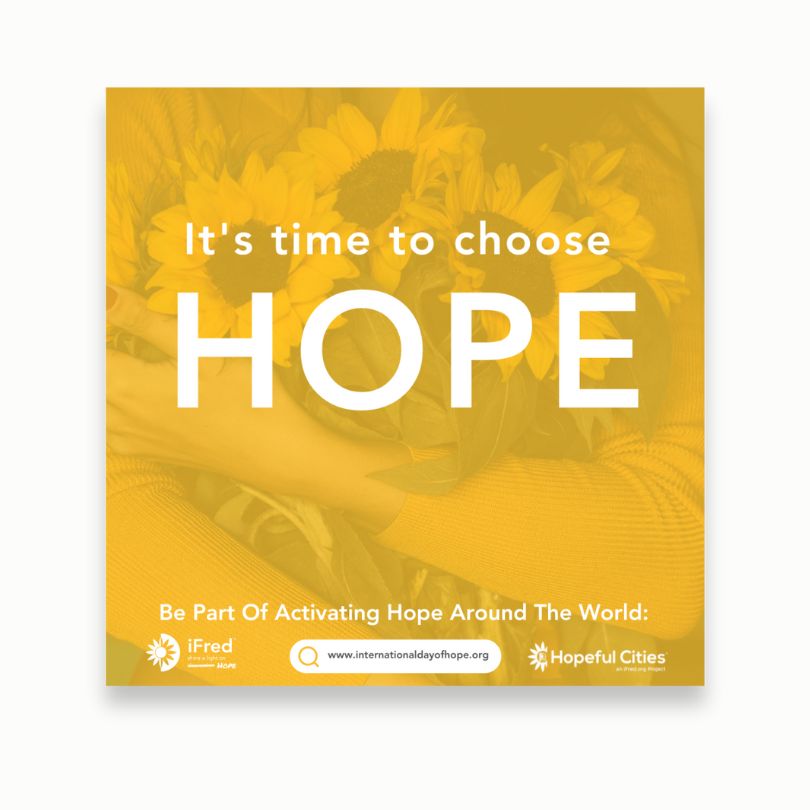
Social Media Kit
Social media is a great way to share the resources available for Hope with your friends, family, and community.
*By downloading these resources, you agree to our policy and you acknowledge that you live in Reno, Nevada. Please refer to the other city pages if you are not from this city or visit this page to download the materials as a general user.
Disclaimer: These materials are designed to assist you in learning about Hope. They should not be used for medical advice, counseling, or other health-related services. iFred, The Shine Hope Company and Kathryn Goetzke do not endorse or provide any medical advice, diagnosis, or treatment. The information provided herein should not be used for the diagnosis or treatment of any medical condition and cannot be substituted for the advice of physicians, licensed professionals, or therapists who are familiar with your specific situation. Consult a licensed medical professional, or call 911, if you are in need of immediate assistance.
